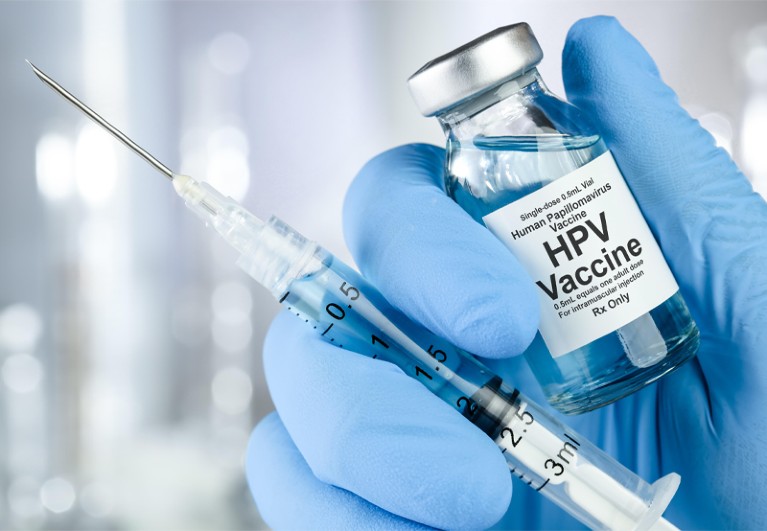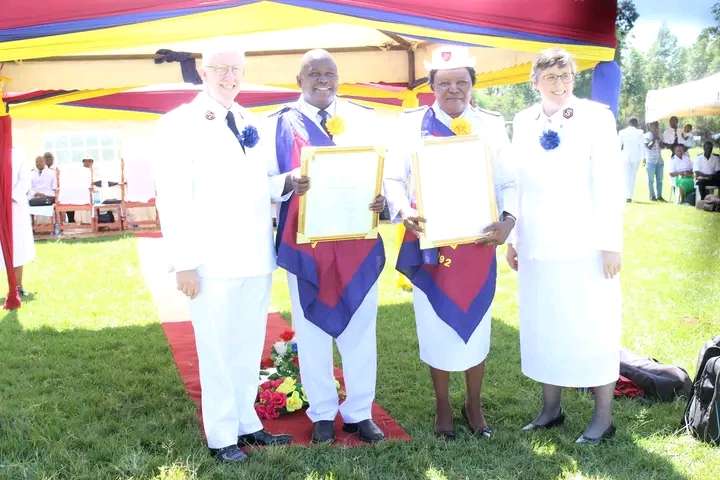Kenya has officially transitioned to a single-dose Human Papillomavirus (HPV) vaccine as part of its intensified efforts to combat cervical cancer. This move replaces the previous two-dose regimen, streamlining access to the life-saving vaccine.
Health Cabinet Secretary Dr Deborah Barasa has urged parents and caregivers to ensure that eligible girls aged between 10 and 15 receive the cancer-preventive vaccine.
According to the latest GLOBOCAN 2022 report, Kenya records nearly 45,000 new cancer cases annually, with cervical cancer remaining a major concern. The report indicates that each year, 5,845 women are diagnosed with cervical cancer, and 3,591 succumb to the disease. GLOBOCAN is an online database that provides global cancer statistics, offering estimates of incidence and mortality in 185 countries for 36 cancer types.
“This devastating loss of lives underscores the urgency of accelerating preventive measures, raising public awareness, and strengthening early detection and treatment strategies,” Dr Barasa stated during the Ministry’s weekly health sector briefing yesterday.
As part of the government’s response, the Ministry of Health, through the National Immunisation and Vaccine Programme (NIVP) and the National Cancer Control Programme (NCCP), has taken significant steps to improve access to the HPV vaccine.
“Prevention remains one of the most powerful tools in combating cervical cancer,” Dr Barasa affirmed, revealing that approximately 19 million Kenyans have so far registered for the Social Health Authority (SHA) scheme.
She further emphasised the importance of the single-dose transition, urging parents and caregivers to ensure that eligible girls receive this crucial vaccine.
However, the Cabinet Secretary acknowledged that challenges remain, including misinformation, stigma, and limited healthcare access. “By working together—government, healthcare providers, partners, and the media—we can overcome these barriers,” she said.
Dr Barasa highlighted the need for a united front in the fight against cervical cancer, stressing that informed advocacy and collaboration could significantly reduce the country’s cervical cancer burden and save lives.
Scientific advancements and years of dedicated research have proven that a safe and effective vaccine can prevent HPV infections, which are responsible for 99 per cent of cervical cancer cases.
Although the HPV vaccine was introduced in 2006, only 21 per cent of girls had received a dose by 2022—far below the World Health Organization’s (WHO) target of vaccinating 90 per cent of 15-year-old girls by 2030. One reason for the low uptake was the previous recommendation of two or three doses, which posed logistical challenges, particularly in communities with limited healthcare access.
“Now, thanks to several recent studies supported by our foundation, we know that just one dose of the HPV vaccine provides powerful protection against the virus and cervical cancer—the fourth most common cancer among women,” Dr Barasa noted.
More than 36 countries have already adopted the single-dose approach, making it significantly easier to ensure that more women are vaccinated and protected from this devastating disease.
Cervical cancer remains the leading cause of cancer-related deaths in Kenya, with an estimated 3,200 fatalities in 2020. Globally, it is the eighth most common cancer overall and the fourth most common among women.





